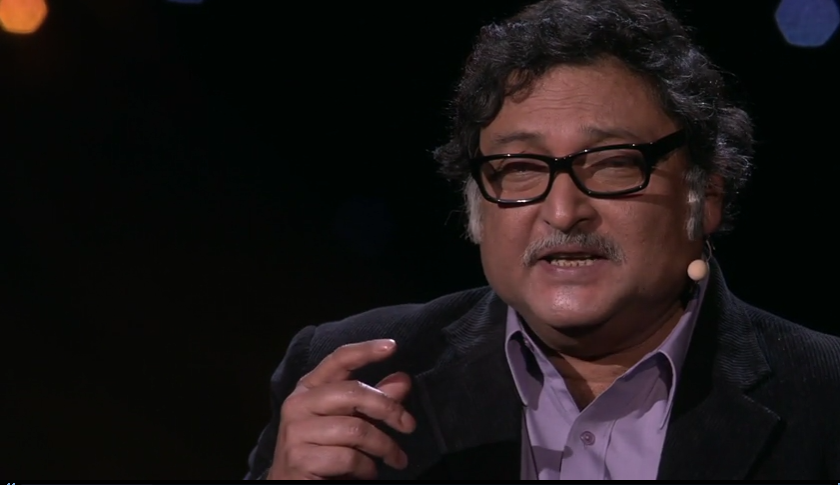Well, I bumped into this whole thing completely by accident.
一個(gè)偶然的機(jī)會(huì)讓我想到這一切。
I used to teach people how to write computer programs in New Delhi, 14 years ago.
我從前教人寫電腦程序,那是14年前在新德里的時(shí)候。
And right next to where I used to work, there was a slum.
就在我辦公地點(diǎn)的旁邊有個(gè)貧民窟。
And I used to think, how on Earth are those kids ever going to learn to write computer programs?
我一直在想,究竟怎樣才能讓那些孩子去學(xué)習(xí)寫計(jì)算機(jī)程序呢?
Or should they not? At the same time, we also had lots of parents, rich people, who had computers, and who used to tell me,
他們應(yīng)該學(xué)這個(gè)么?同時(shí),常有一些家長們,有計(jì)算機(jī)的富人們,告訴我說,
"You know, my son, I think he's gifted, because he does wonderful things with computers. And my daughter -- oh, surely she is extra-intelligent." And so on.
“你知道,我兒子,我覺得他很有天分,因?yàn)樗苡秒娔X做些很棒的事情。而我的女兒,當(dāng)然也是聰慧過人。”諸如此類。

So I suddenly figured that, how come all the rich people are having these extraordinarily gifted children?
于是我忽然想,為什么所有這些富人都有天賦異稟的孩子?
What did the poor do wrong?
窮人們做錯(cuò)了什么?
I made a hole in the boundary wall of the slum next to my office,
我在我辦公室旁邊的貧民窟的外墻上打了個(gè)洞,
and stuck a computer inside it just to see what would happen if I gave a computer to children who never would have one, didn't know any English, didn't know what the Internet was.
并在里面安裝了一臺電腦,為的是看一看,假如給那些從未摸過電腦的孩子一臺電腦,會(huì)發(fā)生些什么?他們完全不懂英語,完全不知道英特網(wǎng)是什么。











